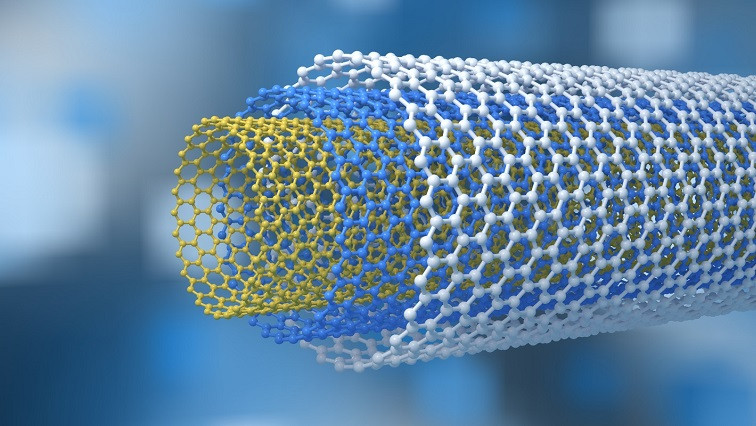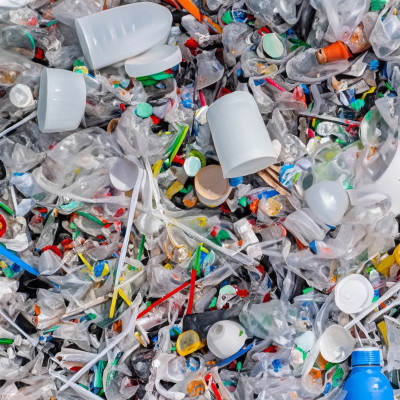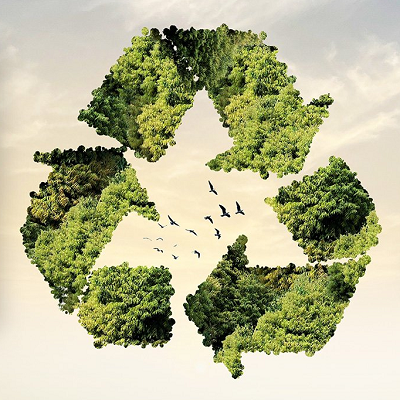Nanotechnology offers novel approaches to capturing and storing carbon dioxide from the atmosphere and industrial processes. Nanomaterials and Nanotubes can selectively absorb carbon dioxide from gas mixtures, making the capture process more efficient. Nanotechnology can also improve the storage and conversion of captured carbon dioxide and can fasten the conversion of Carbon dioxide into useful chemicals and fuels helping in the reduction of greenhouse gas concentration.
These observations were made by Rajeevan Madhavan Nair, former secretary of the Ministry of Earth Sciences and Vice Chancellor of Atria University. He was speaking about the 'Use of Nanotechnology for Mitigation of Climate Change' on the sidelines of the 13th edition of the Bengaluru India NANO Summit.
Nair cited research to say that avoiding a climate disaster will require 10 billion tons of CO2 emissions to be eliminated from the atmosphere each year by 2050 through decarbonisation and capture. “Novel nanomaterials and other nanotechnology-enabled innovations can help accelerate the current timeline and decrease the cost associated with many of the technologies being used and developed. Nanotechnology can act as a catalyst for innovation in key areas and industries that could help accelerate progress towards climate change mitigation and sustainable goals in the short term,” remarked Nair.
The Bengaluru INDIA NANO Summit is being organised by the Department of Science & Technology, Government of Karnataka, Karnataka Science and Technology Promotion Society (KSTePS), and Jawaharlal Nehru Centre for Advanced Scientific Research (JNCASR). It was inaugurated by the Chief Minister of Karnataka Siddaramaiah in the presence of the Deputy Chief Minister of Karnataka D.K. Shivakumar. This year's theme has been Nanotechnology for Sustainability: Climate, Energy, and Healthcare.
Bharat Ratna Prof. C.N.R. Rao was felicitated during the inauguration. “I urge our scientists and engineers to innovate solutions in nanotechnology for critical areas such as food and energy security, water purification, healthcare, and waste management. Addressing the challenges posed by urbanization and environmental hazards requires robust international collaboration and a strong link between academia, industry, and research to advance this promising technology for the benefit of humanity,” said Siddaramaiah while inaugurating the summit.
This years conference included a one-day pre-conference tutorial which is being followed by two days of a multi-track conference. The pre-conference tutorials covered topics including Nano Fabrication, Nano Characterisation, and Nano Biology. During the opening plenary session featured Prof. Pulickel Ajayan, Chair of the Department of Materials Science and NanoEngineering at Rice University, USA, who explored the transformative impact of nano-engineered materials on technology.
The Global Innovation Alliance Partner Countries of Karnataka including the USA, Netherlands and Germany also conducted sessions in the conference. The Poster Showcase, a highlight of Bengaluru India Nano, featured research from over 200 young researchers across academic and research institutions like various IITs, BITS Pilani, University of Mysore, SASTRA Deemed University, CSIR National Physical Laboratory, IISER, JNCASR, IISc- Bangalore, JAIN University, NIT Rourkela, REVA University, Bangalore University, Institute of Chemical Technology- Mumbai, TamilNadu Agriculture University- Coimbatore, Vellore Institute of Technology, Indian Institute of Space Science & Technology etc.
The event also has an exhibition that showcases the latest innovations, products, and technologies in nanotechnology. Around 50 companies, research institutions, and startups are presenting their nanotech products and services in the exhibition.
Read the original article on The Week.







